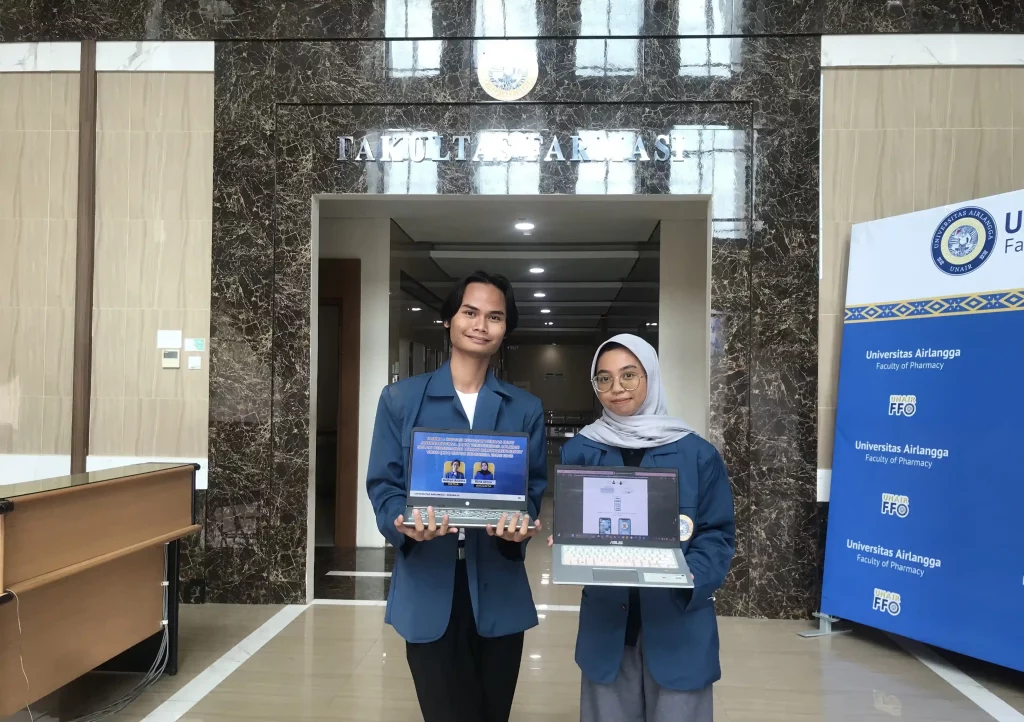UNAIR NEWS – Students from Universitas Airlangga’s (UNAIR) Faculty of Pharmacy, Reihan Ananta Noor Baihaqi and Rivia Ghina Rahmi, secured first place in the 2024 World AIDS Day (WAD) National Scientific Essay Competition. Organized by the Student Association of General Medicine at the Faculty of Medicine, Udayana University, the winners were announced on Monday, December 30, 2024. Baihaqi and Rahmi’s groundbreaking innovation centered on smart packaging for antiretroviral (ARV) drugs to aid in HIV/AIDS treatment.
The competition revolved around the theme, “Epitychia: Health Improvement Strategies of HIV/AIDS to Actualize Golden Indonesia 2045.” Baihaqi and Rahmi focused their essay on advancing science and technology as a means to enhance preventive, promotive, curative, and rehabilitative efforts against HIV/AIDS.
Smart antiretroviral drug packaging
Their proposed innovation integrates smart ARV drug packaging with a mobile application. The number of HIV patients in Indonesia remains high and is expected to increase annually. Baihaqi further noted that the greatest challenges faced by HIV patients include low treatment adherence, limited understanding of therapy, and mental health issues.
“We introduced the innovative Blister Intelligent Keeper and Assistant (BLINKA), a smart drug packaging solution integrated with a custom-developed application, as a creative approach to address various challenges in HIV treatment in Indonesia. Moreover, it includes several advanced features such as therapy monitoring, augmented reality education, counseling services, the latest news, and words of affirmation.”
The team designed the concept within a week, concentrating on addressing key problems in HIV treatment. Baihaqi emphasized the importance of integrating sensor technology and application-based solutions into the packaging system, which uses cutting-edge technology to track and manage medication use.
Aiming for real-world impact
Baihaqi shared that their primary motivation for participating was to make a meaningful impact in combating HIV/AIDS. Utilizing simple technologies such as dosage sensors, reminder notifications, and consumption trackers, the innovation is intended to directly benefit patients.
However, the process was not without its difficulties. The team carefully examined various factors, including social conditions, psychological impacts, and the stigma associated with HIV/AIDS.
“I hope more UNAIR students will engage in such competitions to develop their academic and non-academic potential. Let’s continue to inspire and contribute to society, bringing pride to UNAIR while advancing collective progress,” Baihaqi concluded.
Author: M. Akmal Syawal
Editor: Yulia Rohmawati









